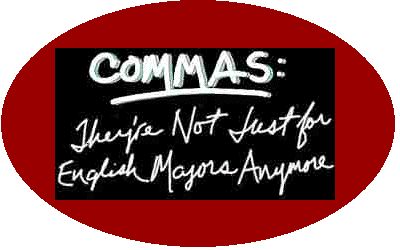The basic trick here is to find your commas. If you have one and you've used a coordinating conjuction, there must also be an independent clause on both sides for the comma to be "justified." But what in the world
are "coordinating
conjunctions"? Fortunately, there are only seven. Here's an
easy way
to remember them:
Here's an example: Beatrice's hair started smoking in the middle of dinner, and it later burst into flames.Is the comma justified? The answer can be found by answering two questions: 1) First, check for one of the FANBOYS. Do we have one? Yes: and.Since both sides are independent, the comma is correct. Now follow the same procedure for another example: He had turned into a giant cockroach, yet looked exactly the same.Does this comma belong here? The sentence contains a coordinating conjunction, a FANBOY, yet. What comes before yet can stand by itself: "He had turned into a giant cockroach." However, what follows the FANBOY, "looked exactly the same," cannot.
CORRECT: He had turned into a giant cockroach yet looked exactly the same.
These words are just a few examples of conjunctive adverbs. Very often, writers get into trouble by joining independent clauses with these words. But remember, they are not FANBOYS. That means they SHOULD NOT be used along with a comma to join independent clauses--if they are, they will form a comma splice. Q. Yeah, but what's a comma splice? A. A comma splice occurs when a comma--and just a comma--is used to join two complete sentences. Q. How can I tell if I have a comma splice? A. Let's have a look on how to look for a comma splice with this sentence:
Uh
oh. Anytime you join two parts that could have stood by themselves, you
create a comma splice. In other words...
Q. How
can I fix a comma splice?
Before moving on, and since it's all so exciting, we should also mention subordinating conjunctions. Subordinating conjunctions are words that signal a subordinate or dependent clause. Examples include
INCORRECT: We had hamsters for dinner, because we were out of hamburgers.Because is a subordinating conjuction. We have clauses that can stand alone on both sides of "because," but since "because" is not one of the FANBOYS, we don't need a comma. Just for review, see if you know what happens if we place the second part of this sentence at the beginning. Now we have the subordinate clause, which you might recognize as an introductory element, in front of the independent clause. So a comma belongs after "hamburgers."
Intro, Get Started, IE, CE, 2IC, FANBOYS, CA, NRE, Review |
|
||||||||||||||||||||||||||
